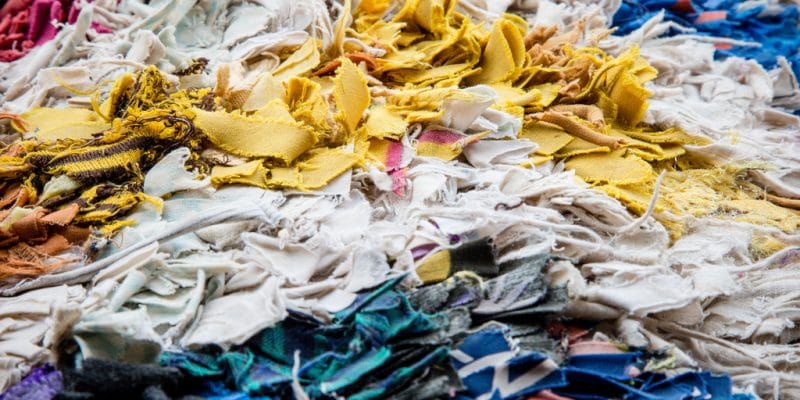In Morocco, the International Finance Corporation (IFC) is supporting the development of a value chain for the recycling and recovery of waste from the textile industry with funding of 340,000 euros (3.6 million dirhams).
Tangier, the cultural capital of Morocco, attracts many souls, especially designers. In this port city of more than one million inhabitants, the International Finance Corporation (IFC), the subsidiary of the World Bank Group, is providing 340,000 euros (3.6 million dirhams) in financing for the recycling of textile industry waste.
The support program launched by the IFC will run for 10 months and aims to support the development of a value chain for the recovery of cutting waste, dead stock and non-conforming products that could be reused to strengthen circular business models in this sector.
A sustainable industry is needed!
In the Cherifian kingdom, the textile industry employs about 200,000 people and generates a production of 95 billion dirhams (nearly 9 billion euros), 75% of which is destined for export, according to the Moroccan Association of Textile and Clothing Industries (AMITH), which records more than 1,000 companies producing one billion garments per year. The textile market produces 83,200 tons of waste per year in Morocco, including 16,700 tons of reusable waste and 66,500 tons of recyclable waste.
Read also-AFRICA: UNECE advocates blockchain for sustainable apparel
According to the Moroccan Agency for the Environment and Energy Management (ADEME), the textile industry is the second largest emitter of greenhouse gases (GHG) in the world after the oil industry. Faced with this fact, some designers tend to reduce the ecological impact of their activities (from production to exhibition during the fashion shows, editor’s note) especially by using less water and products highly harmful to the environment, likely to be released into nature.
Benoit-Ivan Wansi





